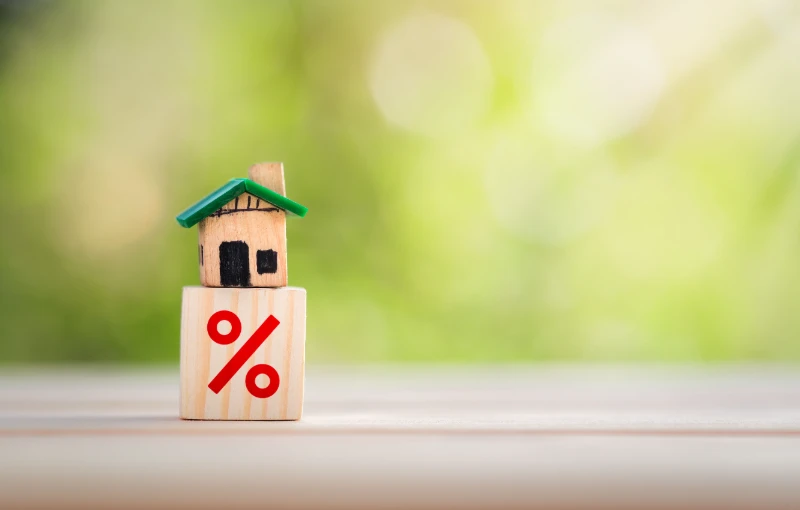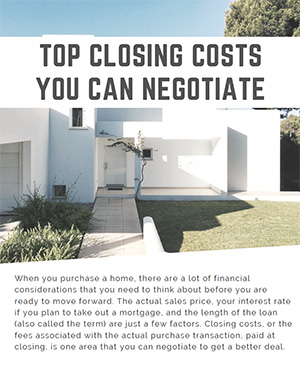Choosing the right mortgage professional is a critical step in the home-buying process. Whether you…
Making the Choice: Buying vs Building in Texas
Embarking on buying a home in Texas involves many factors. You can buy an existing home or build new. It’s essential to understand the Texas housing market trends and economic influences. This guide explains advantages, challenges, customization, time limits, and costs for both options. It helps you make an informed choice that fits your needs and dreams.
Understanding the Texas Housing Market
The Texas housing market is dynamic, influenced by various factors like interest rates, real estate trends, and economic conditions. Potential buyers navigate a landscape shaped by new construction projects, existing homes, and the expertise of real estate agents. Understanding the market involves recognizing distinctions between older and newer homes, considering customization options, and evaluating financial factors such as mortgage rates and loan types. In Texas, buyers encounter a range of choices, from traditional mortgages to construction loans, each impacting their purchasing power and long-term investment. Stay informed about market fluctuations and emerging trends to make well-informed decisions in this ever-evolving real estate environment.
Current Trends in Home Buying and Construction
The current trends in home buying and construction in Texas reflect a dynamic market landscape influenced by various factors. Rapid urbanization has fueled a demand for ready-to-move-in homes, with buyers increasingly valuing convenience and speed. However, the trend towards sustainability and eco-friendly practices is also gaining traction in new construction projects. Innovative technologies like virtual reality tours are revolutionizing the way buyers explore properties, offering a more immersive experience. Consequently, builders are incorporating smart home features and energy-efficient solutions to cater to evolving buyer preferences. This blend of tradition and innovation characterizes the current trends shaping the choices between buying an existing home or building anew.
Impact of Economic Factors on Housing Choices
The decision between buying vs building a house in Texas is significantly influenced by economic factors. Market conditions, interest rates, and housing supply directly impact housing choices. During economic downturns, purchasing an existing home might be more appealing due to lower prices and interest rates. Conversely, in a thriving economy, building a new house could be financially viable with the potential for return on investment. Job stability and income growth also play a crucial role in determining whether buying or building aligns with financial objectives and long-term plans. Understanding how economic factors fluctuate can guide individuals towards the most advantageous housing decision.
Buying a Texas Home
When considering buying a Texas home, there are immediate ownership benefits to explore. Purchasing an existing home provides a sense of stability and quicker occupancy. Real estate agents can guide you through the process, ensuring smooth transitions and negotiations. Understanding interest rates and mortgage options is crucial to making informed decisions. Be mindful of potential pitfalls such as unexpected expenses and property taxes. Conduct thorough inspections to uncover any hidden issues. It’s essential to assess your financial situation and credit score before diving into the market to secure the best loan terms available. Consider the advantages of established neighborhoods and existing infrastructure when making your decision.
Advantages of Purchasing an Existing Home
Opting for an existing home often appeals to those who value convenience and a streamlined process. Once pre-approved for a mortgage, you can collaborate with a skilled real estate agent to pinpoint suitable properties, schedule viewings, and navigate the negotiation process. Compared to the complexities of building, purchasing an existing home often translates to a faster move-in.
Another compelling advantage lies in the potential cost savings. Existing homes, on average, come with a lower price tag than newly constructed ones, especially when factoring in the rising costs of building materials. Additionally, mature landscaping, established neighborhoods, and the avoidance of construction-related delays add to the allure.
Here are some additional benefits to consider:
- Faster move-in: Typically, a smoother and faster closing process.
- Established Neighborhoods: Experience the charm of mature trees, developed amenities, and a sense of community.
- Potential for Negotiation: Depending on market conditions, you may have room to negotiate the purchase price.
- Home Warranty Options: Explore home warranties to mitigate the risk of unexpected repair costs in the initial years of ownership.
Challenges and Considerations When Buying a Home
Navigating the process of buying a home in Texas comes with its own set of challenges and considerations. From competing in a fast-paced market to dealing with potential repair costs, buyers must carefully assess their options. Understanding the intricate details of property inspections, appraisal discrepancies, and negotiation strategies is crucial for a successful purchase. Additionally, buyers need to be aware of hidden costs such as property taxes, homeowners’ association fees, and maintenance expenses to avoid future financial surprises. Making an informed decision requires thorough research and possibly the assistance of a real estate agent to guide you through this intricate process.
Building a Home in Texas
Embarking on the journey of building a new home in Texas offers a myriad of possibilities for customization and personalization. With the flexibility to choose the floor plan, materials, and design elements, you can truly create a space that reflects your unique preferences and lifestyle. Opting to build a new home also provides the advantage of starting fresh without potential issues commonly found in existing houses, such as outdated systems or structural concerns. Partnering with a reputable builder can ensure that the construction process is smooth and efficient, resulting in a home tailored to your vision and needs.
Benefits of Building Your Dream Home from Scratch
Crafting your dream home from the ground up offers unparalleled benefits. When building a house, you have complete control over the design, layout, and material selection, ensuring your vision comes to life. By leveraging sentiment analysis, builders can tailor the project to your specific needs, enhancing overall satisfaction. Moreover, building from scratch allows for the integration of the latest technology and sustainable features, aligning with eco-friendly solutions. Harnessing natural language processing tools can facilitate communication with builders, streamlining decision-making and project management. Embrace the opportunity to create a home that truly reflects your style and requirements with the precision and personalization that only building from scratch can offer.
Key Steps and Considerations in the Home Building Process
When opting for building a new home, certain key steps and considerations come into play. Firstly, it’s vital to find a suitable location that aligns with personal preferences and future needs. Next, engaging with architects and builders proficient in algorithms can help visualize and create personalized designs. Financial planning, including securing appropriate funding and understanding construction costs using regression models, is crucial. Additionally, obtaining permits and adhering to local regulations ensures a smooth building process. Lastly, overseeing the construction phase, conducting regular inspections, and incorporating sustainable practices can lead to a successful and fulfilling home building experience. Careful attention to these steps can result in the dream Texas home becoming a reality.
Comparing Costs: Buying vs. Building
When considering the costs between buying and building a house in Texas, several factors come into play. Buying an existing home may involve the purchase price, property taxes, and potential unexpected expenses. On the other hand, building a new home includes construction costs, customization options, and upfront payments for the construction project. Understanding the financial implications, such as mortgage loans, interest rates, and home equity, is crucial in making an informed decision. While buying offers immediate ownership, building provides full customization but requires time and construction expenses. Evaluating your financial situation and long-term housing needs will help determine whether buying or building aligns best with your goals.
Initial Costs and Long-term Investments
Opting to purchase an existing house in Texas typically involves lower initial costs, given that the property is already built. However, considerations should be made regarding potential renovation expenses. The decision to build a new home entails higher upfront investment but offers long-term benefits through potential energy savings and increased property value. By utilizing sentiment analysis, individuals can gauge the market’s viability for either option, ensuring a sound financial decision. Choosing between buying and building a Texas house depends on balancing initial costs with long-term investment returns, guided by a deep understanding of tools and real estate dynamics.
Hidden Costs in Both Buying and Building
Navigating the realm of homeownership involves more than just the upfront costs. Hidden expenses lurk beneath the surface for both buying and building a house in Texas. When purchasing an existing home, one may encounter unforeseen repair bills or maintenance costs that were not apparent during the initial assessment. Similarly, building a custom home can lead to unexpected expenses due to fluctuating material prices or design changes. These hidden costs emphasize the importance of thorough research and financial planning before committing to either option. By factoring in possible additional expenses, prospective homeowners can make more informed decisions when weighing the choice between buying and building a house in Texas.
Financing Your Texas Home
When considering financing your Texas home, various factors come into play. Understanding your financial situation is crucial in deciding between buying or building a house. Factors like credit score, mortgage payment, and interest rates will affect your financing options. If you opt for purchasing an existing home, traditional mortgages or VA loans might be applicable. On the other hand, building a new house may involve construction loans with different payment requirements. It’s essential to weigh the pros and cons of each financing option before making a decision. Seeking advice from real estate agents or financial experts can provide valuable insights into the best financing route for your Texas home.
Mortgage Options for Buyers and Builders
Exploring mortgage options is pivotal for both buyers and builders in the Texas housing market. Buyers often seek conventional loans, FHA loans, or VA loans to finance existing home purchases, benefiting from competitive interest rates and down payment flexibility. Builders, on the other hand, may opt for construction loans that convert to traditional mortgages upon project completion. Understanding the nuances of mortgage financing is essential for navigating the complexities of home acquisition in Texas, ensuring that financial decisions align with long-term goals and budget constraints. By weighing the pros and cons of different mortgage options, individuals can make informed choices between buying or building their dream home.
Special Focus on VA Loans for Veterans
When exploring the realm of home acquisition for veterans, the discussion must include VA loans. These specialized loans cater to veterans, offering favorable terms such as zero down payment options, lower interest rates, and more forgiving credit requirements. VA loans provide financial benefits that can significantly impact the decision-making process between buying and building a house. By leveraging these benefits, veterans can access housing options that may not be feasible with conventional loans, potentially simplifying the path to homeownership. Understanding the nuances of VA loans is crucial for veterans seeking to make informed choices in the Texas housing market.
Navigating Legal and Regulatory Considerations
When making the decision between buying versus building a house in Texas, it’s crucial to navigate through various legal and regulatory considerations. Both options involve compliance with state laws, zoning regulations, and building codes. Purchasing an existing home requires understanding property transfer protocols, title transfers, and potential liabilities. On the other hand, building a new home involves obtaining permits, adhering to construction regulations, and ensuring compliance with environmental standards. Consulting with a real estate agent or a reputable builder can help navigate these intricacies efficiently, ensuring a smooth process from legal and regulatory perspectives. Understanding these aspects is essential for a successful home acquisition journey in Texas.
Zoning Laws and Building Regulations in Texas
Zoning laws and building regulations in Texas play a crucial role in the decision-making process between buying and building a house. Understanding the specific requirements and restrictions in different areas can greatly influence your options. Zoning laws dictate how properties can be used and the type of structures allowed in that particular zone. Building regulations ensure that all constructions meet safety standards and comply with environmental considerations. Being well-versed in these laws is essential for potential homeowners to navigate through the complexities of real estate transactions and construction projects efficiently. By grasping the nuances of zoning laws and building regulations in Texas, individuals can make more informed choices when deciding between buying an existing home or building a new one.
Compliance and Ethical Considerations in Home Ownership
When owning a property, compliance with legal regulations and ethical standards is paramount. In the realm of Natural Language Processing, understanding the nuances of compliance and ethics can be crucial. In the world of real estate, adherence to zoning laws, building codes, and environmental regulations plays a significant role. Additionally, maintaining ethical standards in property transactions is vital. Utilizing sentiment analysis can help gauge the integrity of real estate dealings. By integrating similar tools, homeowners and buyers can ensure they are operating within legal boundaries and ethical frameworks, fostering a transparent and trustworthy housing market.
The Role of Location in Your Decision
Selecting the ideal location plays a pivotal role in the decision-making process between buying or building a house. Factors like proximity to essential amenities, schools, and work impact both existing and new home choices. Moreover, property taxes and home price can vary significantly based on the location, affecting the cost considerations.
Buying and Building in Urban vs. Rural Areas of Texas
Exploring the choice between buying and building in urban versus rural areas of Texas involves considering various aspects. Urban settings often offer quicker access to amenities, employment opportunities, and social infrastructure, impacting decision-making processes. The fast-paced development in urban areas may lead to limited available land for building, potentially affecting costs and building timelines. On the contrary, rural areas provide a serene environment with more expansive land for custom builds but might lack accessibility to urban conveniences. Understanding the distinct characteristics of each setting can guide individuals in aligning their housing choices with their lifestyle preferences and requirements.
How Location Affects Value and Lifestyle
The location of a house significantly impacts its value and lifestyle. In the Texas housing market, properties near good schools or in up-and-coming neighborhoods tend to have higher value due to demand. Consider the sentiment surrounding a location when deciding between buying or building a house, as it can influence not only the property’s worth but also your overall living experience. Incorporating sentiment analysis in real estate decisions can offer valuable insights into the potential long-term satisfaction with your chosen home.
Time Considerations in Home Acquisition
When deciding between buying or building a house in Texas, time is a crucial factor. Purchasing an existing home typically has a quicker acquisition process due to availability. The timeline for buying a home involves searching, financing, and closing within a few months. In contrast, constructing a new home generally takes a longer timeframe. Building a new house involves designing, obtaining permits, and actual construction phases, which can extend the process to several months or even over a year. It’s essential to consider your time constraints and preferences when choosing between buying or building a home in the vibrant Texas real estate market.
Timeline for Buying an Existing Home
From the moment you decide on buying a pre-owned home in Texas, the timeline can vary based on several factors. Typically, the process of purchasing an existing home takes around 4-6 weeks. This duration includes house hunting, making an offer, negotiating terms, home inspection, securing financing, and closing the deal. However, external elements like the current market conditions, loan approval speed, and seller cooperation can influence this timeline. It is crucial to be prepared for unexpected delays that may arise during the buying process, making flexibility a key attribute for home buyers. Keeping communication open with all involved parties can help streamline the timeline towards acquiring your Texan home smoothly.
Expected Timeframe for Building a New Home
Embarking on the journey of constructing a new home involves a unique timeline compared to purchasing an existing property. Typically, the timeframe for building a new home in Texas can vary significantly based on several factors. On average, constructing a custom home from the ground up can take anywhere from 6 months to over a year to complete. The initial stages, including design, obtaining permits, and preparing the site, can consume a few months. Subsequently, the actual construction process, including foundation, framing, and finishing work, may span several more months. Delays due to weather, material availability, or design modifications can also impact the overall completion timeframe.
Customization and Personalization Options
When it comes to purchasing versus constructing a property, a crucial difference is the extent of customization and personal touch achievable. Although pre-existing homes have constraints, they allow for enhancements and remodels that suit your preferences. Conversely, starting from the ground up, despite being more complex, grants full authority over the design, amenities, and final touches. Your preferred engagement level, financial plan for upgrades or modifications, and readiness to make concessions all influence this aspect of your housing choice.
Limitations and Opportunities in Existing Homes
When considering existing homes in Texas, it’s crucial to weigh the limitations against the opportunities they present. Existing homes may come with design constraints, outdated features, or the need for renovations, limiting customization options. However, these homes often boast established neighborhoods, mature landscaping, and quicker move-in times, providing a sense of community and convenience. While existing homes may restrict major structural changes, they offer cost savings compared to building anew. Making the choice between buying versus building a house involves evaluating the trade-offs between the limitations of existing homes and the opportunities they provide for immediate occupancy and potential value appreciation.
Full Customization in Building a New Home
Crafting a new home offers customization. You control layout, design, and features. It ensures a personalized living experience tailored to your needs. Sentiment analysis gauges emotional response to design choices for a positive space. Entity recognition pinpoints elements crucial to lifestyle, enhancing functionality and aesthetics. Building a new Texas home allows deep dive into techniques, sculpting a residence aligning with your vision.
Frequently Asked Questions
What factors should I consider when deciding between buying and building a house in Texas?
Consider your budget, desired location, timeline, and need for customization. Evaluate the current housing market conditions and potential risks associated with each option.
How do mortgage options vary for buying vs. building?
Buying typically involves a traditional mortgage, while building often requires a construction loan followed by a permanent mortgage. Interest rates, loan amounts, and terms vary.
Can VA loans be used for both buying and building a home?
Yes, eligible veterans and active military personnel in the United States can utilize VA loans to finance both the purchase of existing homes and the construction of new homes.
How long does the building process take in Texas?
Building a new house in Texas typically takes 6-12 months or longer, depending on the home’s complexity. Working with a reputable builder and being prepared for unexpected delays is advisable.
Conclusion
When deciding between buying or building a Texas home, consider market trends, costs, and personal preferences. Both options have pros and cons that should match your goals. Think about location, customization, costs, and timing to choose wisely. Whether you like ready-made homes or personalized builds, pick what fits your dream for a Texan home. Enjoy finding or constructing your house!





